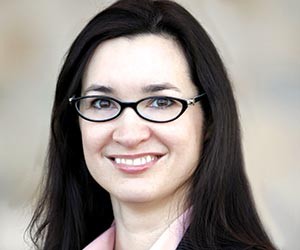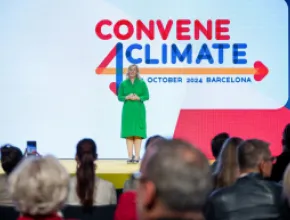Mariela McIlwraith, president of Meeting Change (www.meetingchange.com), a company that offerssustainable business planning for communities, associations and corporations, shared her thoughts about the need for meeting planners to incorporate measurement and reporting regarding their sustainability efforts.
Meetings Focus MidAmerica: Why is the whole idea of measurement is important?
Mariela McIlwraith: The act of measuring in and of itself results in more attention being placed on doing well in those areas, and this helps us to achieve our goals related to sustainable events. Measurement is also a great planning tool for future events. Setting benchmarks allows you to improve both internally and to see how you compare with other organizations. Measurement also promotes accountability, transparency and is critical for meeting increasing corporate, public and regulated demand for reporting on sustainability.
Do you see more companies embracing measurement?
Yes, particularly large events, such as the Olympics. Excellent case studies are available on the Green Meeting Industry Council's website. One that I find particularly fascinating is from the International AIDS Society because it measured not only environmental factors but also the long-term impact of the conference related to social issues, such as the increase in delegate collaborative capacity. I think we'll see increasing numbers of events embracing measurement now that there are new standards that exist for our industry.
Why would planners consider it?
Planners are always looking for ways to demonstrate value--and this is a great way of accomplishing this goal. Sustainability-related measurement is, in many ways, about tracking efficiency and reducing waste that is not only bad for the environment, but is driving up costs. It also aligns well with mandates from many organizations to monitor enterprise-wide sustainability efforts.
Do you have to go “all in” at the beginning, or is it fine to start from a very basic level?
You can definitely start at a very basic level, or within a defined scope. For example, within the BS8901 (and soon to be released ISO 20121) frameworks, you're able to set the scope of what you'll measure. You might choose to start with a specific part of your event, such as your trade show, or a closing gala, without doing the entire program.
You can also decide to focus on a particular issue, such as paper consumption or your event miles. If you choose this approach, I'd suggest reflecting in advance about what the areas of greatest impact from your event will be. Chances are, you'll have a good sense of this intuitively and can focus your efforts accordingly. For example, if your event is taking place in a desert area, you might focus on water. If you typically have a high volume of waste from your exhibit, that might make the most sense.
Does the “mathematical” nature of measurement turn people off to the concept, and is there a way to simplify it?
There are some ways of simplifying the mathematical aspects, such as using estimates for energy usage based on the percentage of a venue's meeting space that was utilized, but what I'd recommend is not to simplify the math--but ‘gamify’ it. What I mean by this is to add fun elements that encourage the type of behavior that you want and then record the actions as they happen. Event Camp Vancouver developed a game to track "Acts of Green" as one example of fun and easy measurement.
Another great way of making it easier to measure is to work with experts in the field. As an example, the Waste Management Phoenix Open gathered extraordinary measurement information by leveraging the expertise of their title sponsor.







